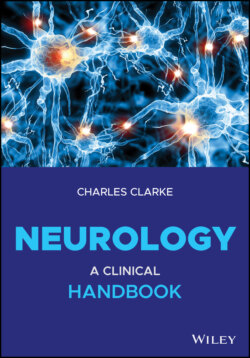Читать книгу Neurology - Charles H. Clarke - Страница 22
Cost of Illness Studies
ОглавлениеThe principal duty of a clinician is to provide individual care. However, doctors are now rightly involved in economic considerations. In any study of cost, analysis is of signal importance. Who was the study for, and who did it? The cost and burden for an individual have different parameters when compared with the effect on families, on health services and on society. Many studies are carried out from the point of view of society, with costs estimated in terms of lost employment, lost productivity and premature death, rather from the perspective of a patient, or their family.
Direct costs mean any resource used – medical costs of primary care, out‐patient and in‐patient investigation, drugs, residential and community care, training and rehabilitation.
Indirect costs are from lost economic production. They include premature mortality, dependency, unemployment and underemployment. The ‘human capital’ approach ascribes a monetary value to a person in terms of their potential productivity.
Table 1.3 DALYs (Disability‐Adjusted Life Year) for neurological and psychiatric conditions.
Source: Modified from Olesen and Leonardi 2003.
| Condition | DALYs × 10 | ||||
|---|---|---|---|---|---|
| Europe | Wealthy countries a | India | Sub‐Saharan Africa | World | |
| Neurological and psychiatric conditions (all)b | 53 009 | 24 682 | 23 949 | 15 788 | 165 082 |
| Cerebrovascular disease | 10 316 | 5166 | 5223 | 5487 | 45 770 |
| Unipolar depression | 4091 | 6721 | 10 064 | 6193 | 60 166 |
| Bipolar disease | 1541 | 1673 | 2867 | 1,785 | 16 722 |
| Schizophrenia | 1609 | 2151 | 2041 | 611 | 14 614 |
| Epilepsy | 633 | 427 | 848 | 526 | 4712 |
| Alcoholism | 4435 | 4611 | 1113 | 2387 | 18,973 |
| Dementia | 4531 | 3286 | 1192 | 453 | 10 135 |
| Parkinson’s disease | 428 | 523 | 167 | 63 | 1278 |
| Multiple sclerosis | 303 | 222 | 253 | 140 | 1569 |
a Established market economies.
b This category excludes cerebrovascular disease.
Disability‐adjusted life year is an indicator of the time lived with a disability and the time lost due to premature mortality. Reproduced with permission from the World Health Organization 1996b. The figures for Europe were separately calculated (Olesen and Leonardi 2003).
Ethical and personal issues are intertwined with cost‐effectiveness. Therapies that are neither cost‐effective from the epidemiological nor from point of view of society can help an individual – such as the belief in homeopathic therapy, or travel to a centre for healing. Societal and evidence‐based, clinical perspectives clash.
Social policy can greatly lessen the individual burden, for example by financial benefits and social support. It must be stressed that in the majority of countries, even those who pride themselves on wealth and power, there is either no or minimal support for those who are ill, either acutely or chronically.
